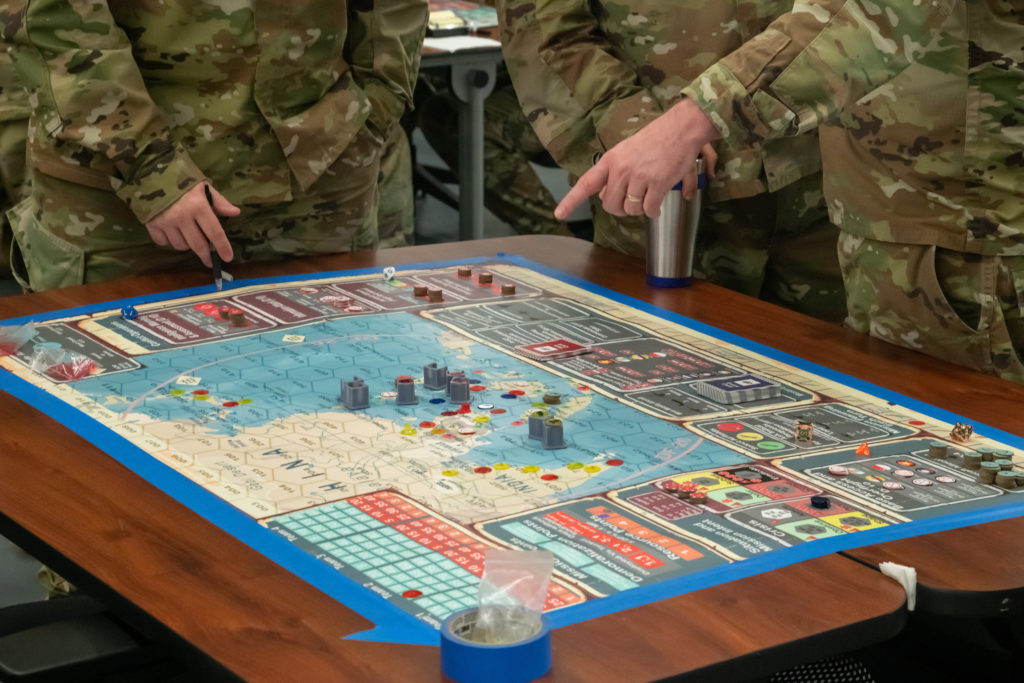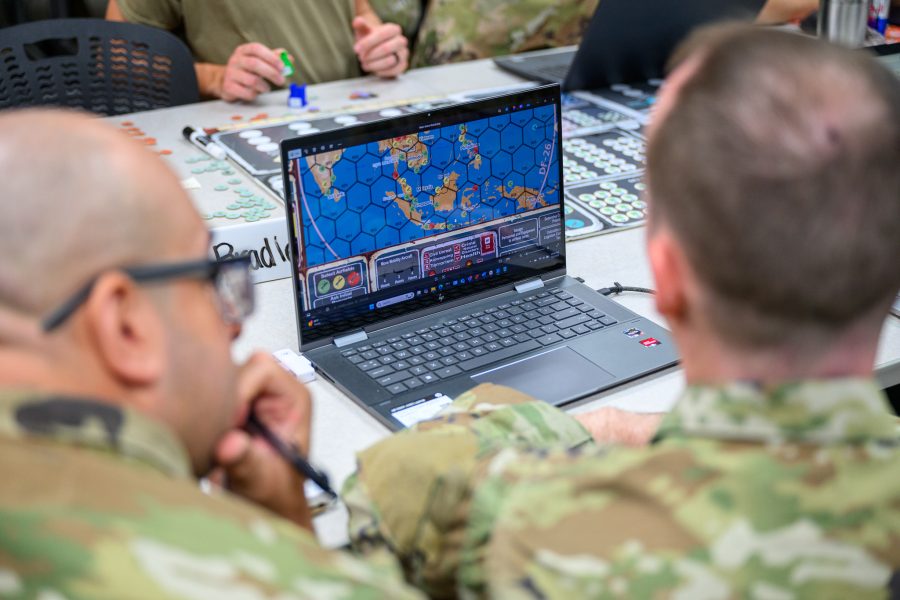Air Force Futures wants to take its wargaming up a notch, with the help of artificial intelligence and other cutting-edge technology.
In a Nov. 23 request for information from industry, the service’s Futures and Concepts directorate laid out its ambitious plan for a “revolutionary shift from traditional, analog methods to a fully digitized and scientific approach.”
Wargames have long been a tool for military leaders to play out different scenarios and test new concepts or processes. For decades, officials have played wargames with pieces on a board, notecards, maps, or blackboards.

In recent years, however, wargames have started to migrate to the digital realm, coinciding with a push to increase and improve wargaming that started in 2015 under then-deputy secretary of defense Robert Work, who wrote in a memo at the time that the ability of the U.S. military to conduct wargames had “atrophied.”
The Air Force Wargaming Institute uses half a dozen modeling and simulation software programs, and the service even authorized Airmen to play the popular strategy computer game “Command” on secure networks earlier this year. What Air Force Futures is looking for goes beyond all of that though.
“The Air Force requires a transformed, future-ready system to achieve Decision Superiority and deliver an integrated Force Design,” the market research release on Sam.gov states, adding that it wants a “digital sandbox” for Airmen to try out new ideas and move fast.
Speed is a central component of the technology the Air Force wants: The request for info calls for “technologies capable of delivering simulations at super real-time speeds,” specifically running as many as 10,000 simulations for every decision or input.
Having the ability to run simulations thousands of times—sometimes called a Monte Carlo simulation—gives users a better picture of all the likely outcomes, instead of a single result that could be an outlier. Organizations in sports and finance regularly use such simulation tools.
The Air Force is also looking for software that can mesh with existing Pentagon tools for wargaming and simulation and can scale “to hundreds of users and tens of thousands of entities.” The service is also interested in an “intuitive, single interface for planners.” Taken together, the proposals could enable “every Airman” to participate in wargames, the request states.
Beyond speed and scale, the RFI also paints a picture of vastly more complex—and realistic—wargames. The request says the Air Force is looking for systems where artificial intelligence agents, essentially bots, represent “every entity” and respond to events in real-time autonomously. Those agents should be able to play against each other, against humans, or team with human players.
The service also wants to use AI to model second-order effects, develop courses of action for players to select, formulate tasking orders based on those courses of action, and deliver qualitative analysis for commanders to review during and after the wargame.
The Air Force is also interested in wargaming tech that can allow players to try out new capabilities before they have actually been deployed, model cost versus risk, and consider impacts on logistics.
Industry has until Jan. 9 to respond, but options are already starting to pop up. On Oct. 30, the Johns Hopkins Applied Physics Laboratory announced plans to open a “GenWar Lab” in 2026 that will use artificial intelligence and large language models to support wargames and tabletop exercises.


